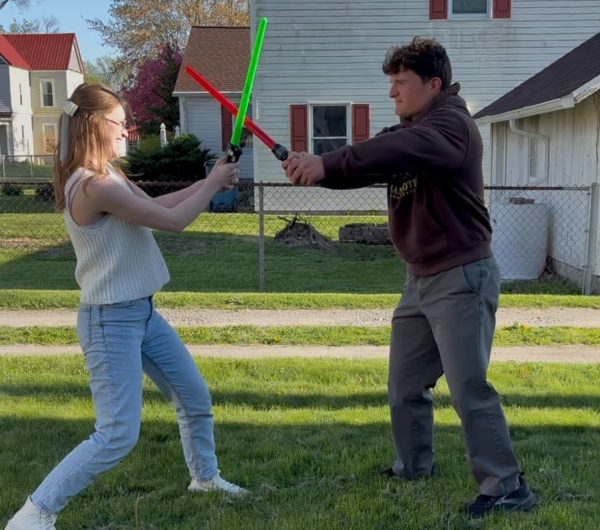Legal Drinking Age Lowered?
Today, a huge controversy exists over the topic of the minimum legal drinking age (MLDA). Some believe the drinking age to be fine at 21, but others believe it should be lowered to 18 or 19. The argument comes with a set of pros and cons for each side. Nobody has come up with a clear cut way to make either side the safest for our country.
Brandon Griggs (a reporter for the CNN news) wrote an article quoting Dwight B. Heath. “In general, the younger people start to drink the safer they are,” said Heath, who has written several books and hundreds of scholarly articles on cultural attitudes towards alcohol. When introduced early, he said, “Alcohol has no mystique. It’s no big deal. By contrast, where it’s banned until age 21, there’s something of the ‘forbidden fruit’ syndrome.”
Having a little alcohol at a young age will help desensitize teens from using it irresponsibly. Michelle Minton (who works for the Competitive Enterprise Institute) also agrees with Griggs by saying, “… Furthermore, since American teenagers learn to drive many years before they are allowed to drink, they often overestimate their driving ability and have less understanding of how alcohol affects their ability to drive, actually leading to more traffic fatalities. Overall, MLDA 21 has done more harm than good.
“For a long time the drinking age and voting age were kept the same until changed in the 1980s. This shows that most states believed that there was an equal level of maturity needed for both drinking and voting. Laurence Steinberg ,an adolescence expert and college professor, says, “The chief argument in favor of a higher drinking age is that it saves lives by reducing automobile crashes, but I’m not persuaded by this reasoning. If highway safety really is the main concern, we’d accomplish much more by raising the driving age. Moreover, countries that use 18 for both the drinking and driving age generally have safer highways than the United States.” Alcohol gets to be a problem in both high school and in college. Making the drinking age 19 keeps underage drinking out of both high school and college.
The other side of the argument has some very good points as well. Laura Dean-Mooney (a reporter for the US news) says, “Since the drinking age was brought up to 21, the number of young lives that were killed from drunk drivers has been cut in half.” Teen drinking can affect a still developing brain. Teen drinkers are more susceptible to alcoholism, drinking at a young age would be a bad idea. The MADD (Mothers Against Drunk Drivers) help teens stay out of trouble with alcohol. They say, “In a recent CNN.com opinion piece about lowering the drinking age to 19, the author asserts that the 21 MLDA is a “national joke.” However, MADD believes that it’s not funny, and it’s only a joke if we choose let it be one.”
Underage drinking is a problem cause by teens but also by adults. Parents that don’t keep control of their children can cause them to get in trouble with alcohol. Tara Watson agrees with these two by saying, “My research with Angela Fertig examined the impact of the drinking age by looking back at the 1980s, when many states moved from a minimum of 18 to 21. Our study found that a lower drinking age was associated with a statistically higher risk of unintended pregnancy and, largely as a result, worse infant health.” Having the drinking age anything younger than 21 gives kids easier access to get alcohol from of age peers. Overall, 21 keeps teens safe from the effect of alcoholism.
Keeping the drinking age at 21 can help and both hurt teens. The drinking age has a lot of controversy. Maybe one day some compromise will happen, but until then the drinking age with still be a big topic debated over.






Dylan Collins • May 5, 2021 at 12:41 pm
I think they should lower the drinking age because I do think kids would know what it feels like to not drink and drive.